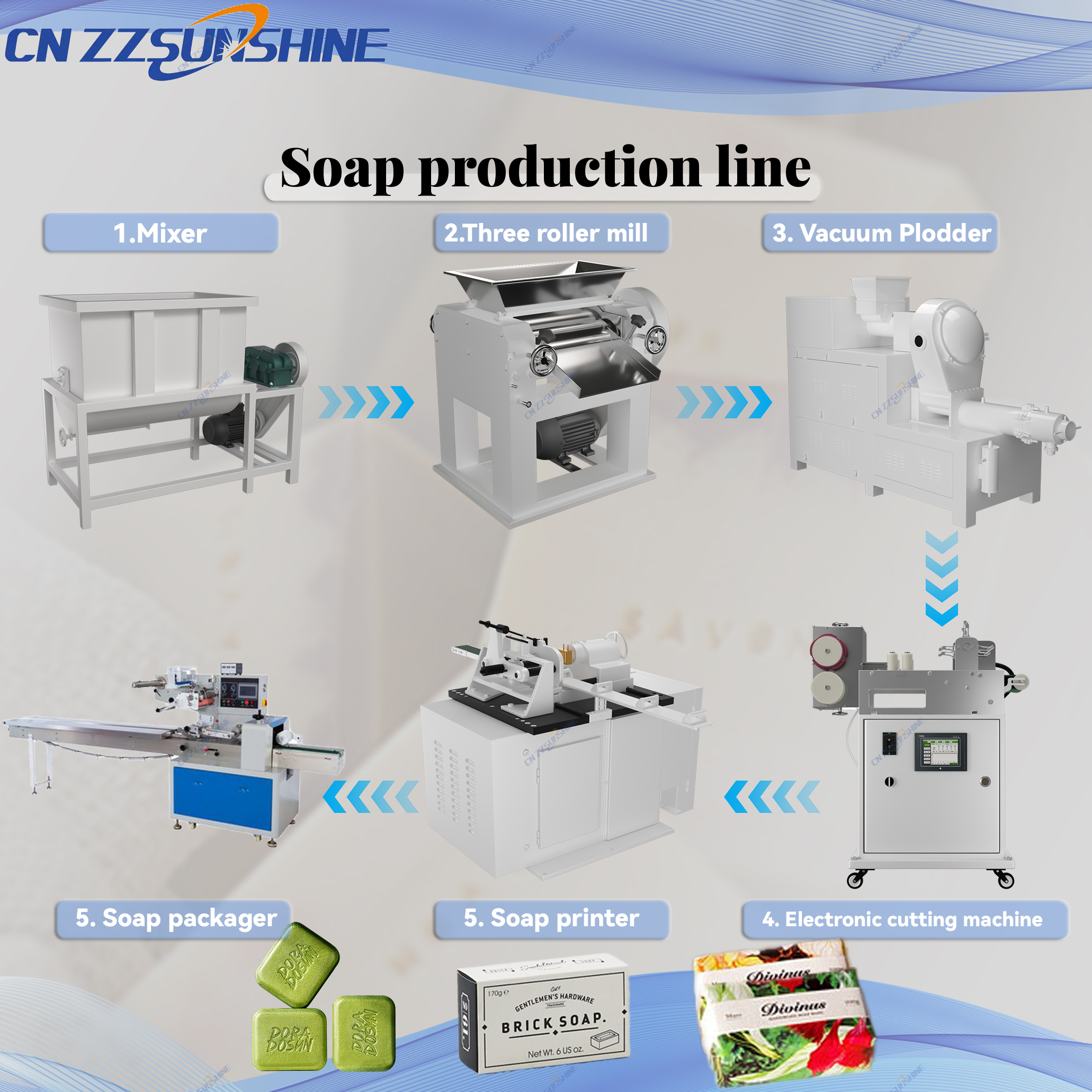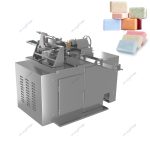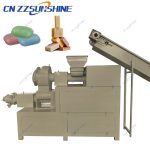For manufacturers aiming to scale soap production efficiently, investing in a fully integrated automatic soap production line is no longer a luxury – it’s a necessity. This comprehensive system replaces labor-intensive, inconsistent manual processes with precision automation, delivering consistent quality, higher throughput, and significant long-term cost savings. Understanding the key components and their integration is crucial for selecting the right line for your specific needs, whether it’s focused on laundry bar soap production, toilet soap finishing, or bath soap making.
The heart of the line begins with the industrial mixer for chemical processing. This robust machine ensures the precise blending of oils, fats, caustics, and additives, achieving a homogenous soap base critical for final product quality. From the mixer, the soap mass moves to the soap plodder machine, typically a vacuum plodder. This stage is vital. The plodder compresses the soap, removes air pockets (critical for bar density and longevity), and extrudes a continuous, uniform log. Vacuum plodder technology is particularly valued for producing high-density, smooth-textured bars essential for premium toilet soap finishing lines and bath soap making machines.
Following extrusion, the continuous soap log enters the cutting phase. Here, a custom soap cutting machine, often an electric washing soap cutter, precisely slices the log into individual bar blanks at high speed. Modern cutters offer adjustable settings to handle various bar sizes and weights required for different markets, from chunky laundry bars to delicate beauty soap making lines. Some advanced lines incorporate an automatic block cutter machine for further refining the bar shape before stamping.
Finally, the cut bars proceed to finishing. This can include stamping, cooling tunnels, quality inspection stations, and packaging. An automatic packing machine for food-grade materials is frequently integrated to handle the wrapped or unwrapped bars, ensuring hygienic and efficient final packaging ready for distribution.
Implementing a complete laundry soap making line or a dedicated toilet soap finishing line demands careful planning. Partnering with experienced suppliers who offer OEM three roller grinding mill options for refining additives, or factory price industrial chiller units to maintain optimal processing temperatures, ensures a smooth transition to automated production. The result? A high-efficiency operation producing superior quality soap bars consistently, meeting market demands while optimizing your bottom line.





